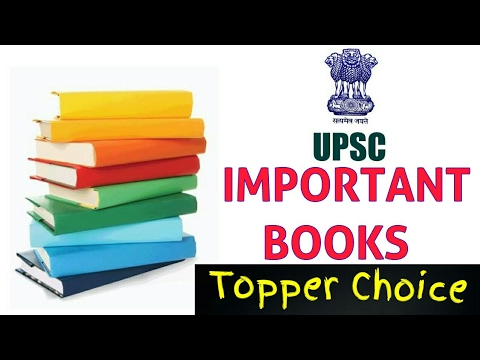Are you an IAS aspirant seeking a curated book list for UPSC
preparation – your search ends here? Amidst the sea of extensive reading
recommendations that might overwhelm you, I present a concise selection of
essential books to kick-start your IAS journey. These picks are not only
valuable but can sometimes be acquired for free.
It's important to emphasize that these books are
indispensable for acing the UPSC Exam and stand as the premier resources for
IAS preparation. Delving into these texts will equip you with the necessary
insights aligned with the UPSC syllabus.
To make the most of these resources, I advise aspirants to not merely
skim through them. Instead, engage deeply with the content, ensuring a thorough
understanding of key concepts, events, and dates. Regular practice in
comprehending and internalizing the subjects will aid memorization. Now, let's
explore the Best Books for UPSC
Prelims 2024
1. India After Gandhi
by Ramachandra Guha:
Gain a comprehensive perspective on Indian politics
post-independence. Guha's narrative bridges historical gaps, shedding light on
the nation's transformation and pivotal events. To effectively digest its
wealth of information, aim to read one chapter per week, supplementing your
understanding with additional research.
2. NCERT Books
NCERTs are your fundamental building blocks. They should be
studied alongside the other recommended books, creating a synergistic learning
experience. Do not attempt to complete all NCERTs before moving on to other
texts. Instead, integrate them into your overall study plan.
3. Indian Polity by
M. Laxmikanth
This book, while challenging, serves as an essential foray
into the realm of Indian polity. Allocate about three weeks for focused
reading, enabling you to grasp core concepts. While Laxmikanth is a stepping
stone, practice and continuous learning are essential to fully comprehend this
complex subject.
4. Indian Economy by
Ramesh Singh:
While not without its limitations, this book remains the
most comprehensive resource available. Adopt a similar approach to Laxmikanth:
read diligently, underline key points, and engage in regular revisiting.
Utilize the table of contents as a revision aid, targeting areas requiring
reinforcement.
5. Introduction to
the Constitution of India by D.D. Basu:
Build upon your foundational knowledge by delving deeper
into constitutional matters. Prioritize comprehension over exhaustive reading.
Create concise skeleton notes, discuss concepts with peers or mentors, and
begin applying your understanding through answer writing practice.
6. India’s Struggle
for Independence by Bipan Chandra:
A structured exploration of modern Indian history is vital.
Focus on causation and significance over memorizing dates. Formulate concise
explanations for major events and theories. Develop your ability to analyze
historical events, enabling you to provide well-argued answers in the exam.
7. 2nd ARC Reports for
Policymaking Insight:
Engage with these reports to understand policy challenges
and recommendations. Focus on the significant issues within each paper,
capturing the essence of their recommendations. Employ a systematic approach,
scrutinizing the reports and developing your perspectives on proposed
solutions.
8. The Wonder That
Was India by A.L. Basham:
This engaging book offers a glimpse into India's ancient
history and culture. Align its content with spectrum culture book and focus on
key arts and cultural aspects. Connect concepts, practice diagrams, and draw
parallels to contemporary India to enhance your understanding.
9. Indian Geography
by Majid Hussain:
Offering more organization than NCERTs, this book provides a
comprehensive overview of Indian geography. Craft detailed notes for each
concept, practice essential diagrams and consistently engage in
question-solving. Use Google to supplement your knowledge of optional syllabus
areas.
10. IGNOU Material on
Disaster Management:
Maximize your preparedness in this vital area. Study ARC
reports alongside this material, noting key points and recommendations.
Leverage your understanding to secure relatively easier marks in this section
of the exam.

